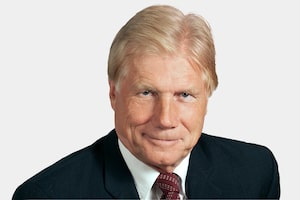Stephen Harper and Barack Obama are men of contrasts. They clash in political philosophy. They clash in style. They clash in personalities. There are other cross-rhythms.
But the unwieldy mix has unexpectedly worked. The agreement on a proposed continental perimeter is but the latest manifestation. It need be recalled that when the Democrats came to power two years ago, they were reputed protectionists, bent on challenging components of the bilateral free-trading regime. The President and the Prime Minister have not allowed it to happen.
One of the unnoticed successes of the Harper years has been his adroit stewardship of the Canadian-American relationship. He cannily kept his distance from fellow conservative, the mightily unpopular George W. Bush. Not being tarnished by the Bush brush was no small feat. He then had to cohabit with a liberal messiah. We all know Mr. Harper's phobia for liberals. But sensing how our population embraced Barack Obama, Mr. Harper has embraced him as well.
On Afghanistan, on the auto bailout, on climate change and now on border security and trade, he has either hitched wagons or effectively collaborated with the Democratic administration.
Given the tumult of the times, keeping relations on an even keel has been no easy task. Mr. Harper had to deal with the American recession, the wreckage in its financial sector, the push toward protectionism, the introduction of passports. Through it all, Canadian nationalists have been at bay. We have not witnessed the degree of discord under previous presidents and prime ministers: Diefenbaker and Kennedy over defence issues, Trudeau and Reagan over the Cold War, Jean Chrétien and Bush Jr. over Iraq, Paul Martin and the same president over national missile defence.
Not all has been good. There was the leaking of the diplomatic memo that occasioned the NAFTA-gate fiasco. There was the Prime Minister's disregard for high principles of justice in his approach to the Canadian held at Guantanamo. And on issues such as climate change, the merits of the bilateral workings can certainly be debated. But politically speaking, there's been a maestro at work.
The proposed perimeter deal comes exactly 100 years after the reciprocity agreement between the Laurier and Taft administrations, the pact that led to the historic free-trade election in 1911.
Reciprocity was defeated in that campaign, but in the century that followed, Canadian prosperity was built on an open border. The calamity of 9/11 with its resultant national security exigencies in Washington has served to undermine the open-border advantage. This makes any progress toward its reinstitution most welcome, and the Harper-Obama accord need be seen in this perspective.
There are legitimate concerns over what this pact means on the security side of the ledger. Is there to be an integrated entry-exit system? Will the NORAD joint air defence model be expanded to other spheres? A security perimeter may not sound worrisome now. But what would happen in the wake of another terrorist hit on the United States? The country could go into lockdown and Canada, given the new uniform arrangements, could find itself locked down with it.
Opposition complaints of secrecy in the proposed new deal don't hold much water because the terms of the arrangement are still to be worked out. But given its potential significance, the government must now proceed with candour. Having an NDPer, Gary Doer, in the post of Washington ambassador is a political plus for Mr. Harper in circumstances like these. But nationalist spirits can easily be reawakened. This was evidenced with the campaign here some years ago against joining Mr. Bush's national missile defence program. It engendered much hostility from Bush unilateralists.
Today, relations have matured and, along with the Prime Minister, much of the credit belongs to Barack Obama, a multilateralist not blinded by any sense of superiority or fatuous conceit that he is doing God's bidding.
The word from inside is that Mr. Harper had big reservations about ideological soulmate Bush, but has come to admire Mr. Obama. Few would have predicted it. The bilateral relationship profits as a result.
 Lawrence Martin
Lawrence Martin